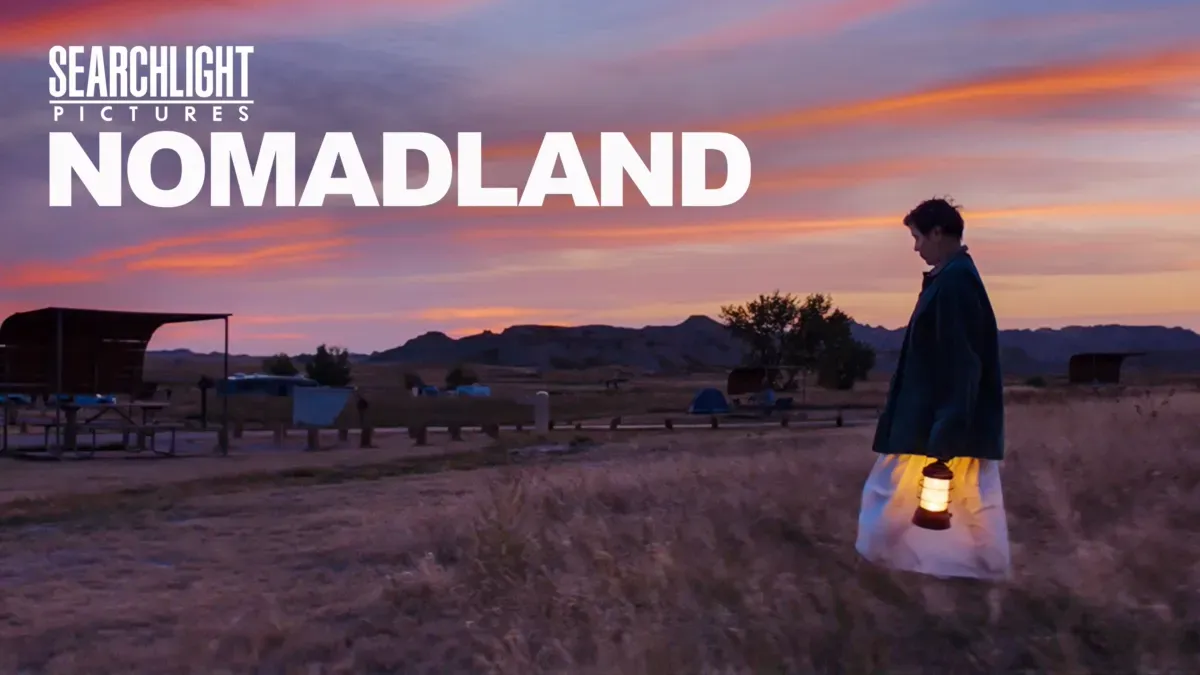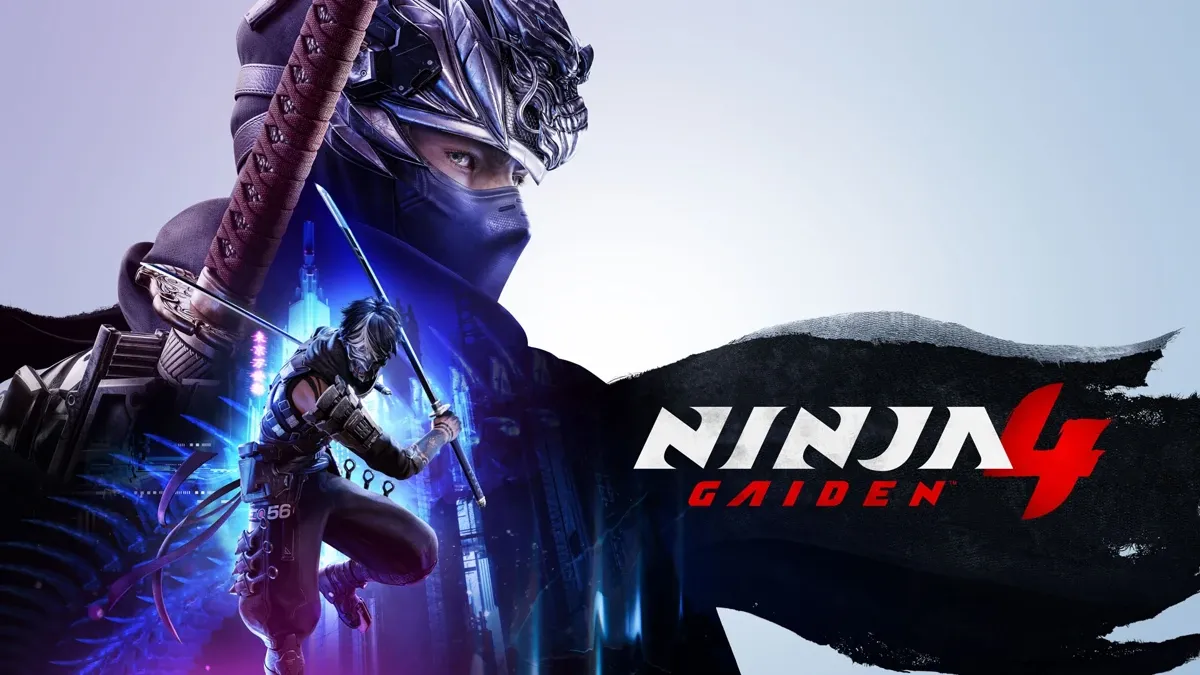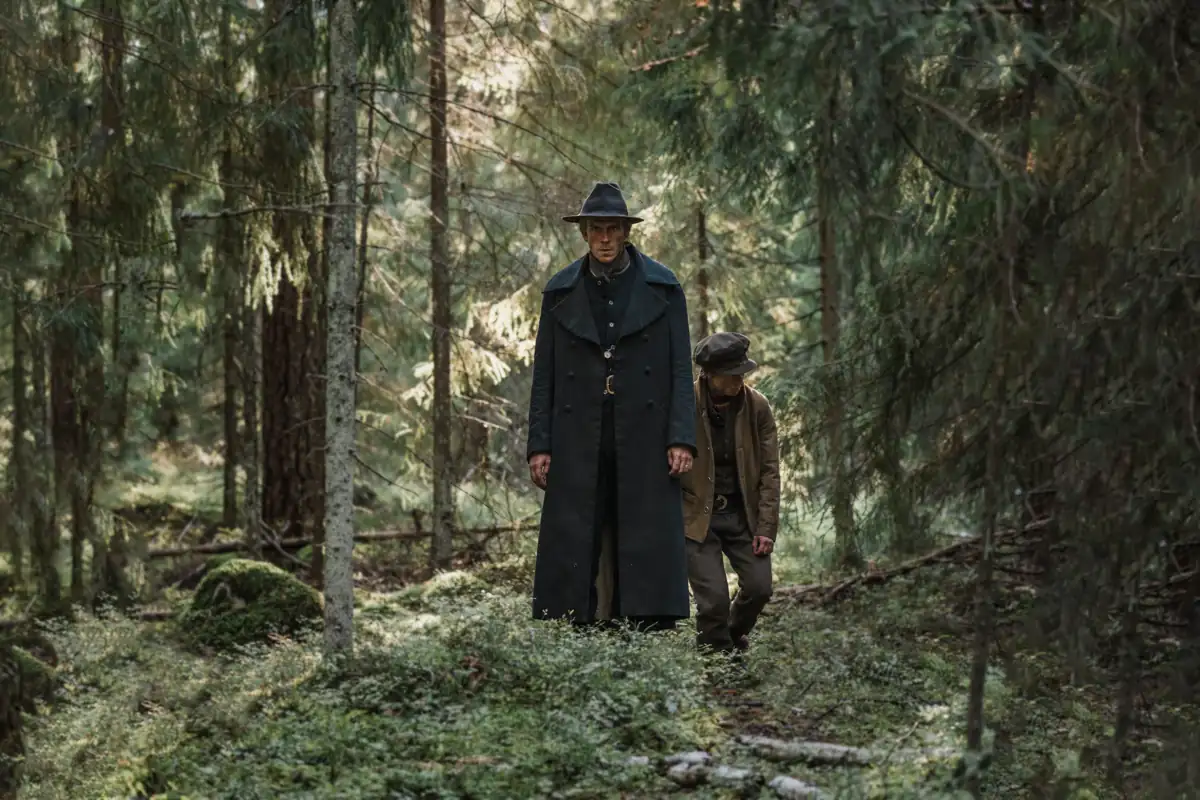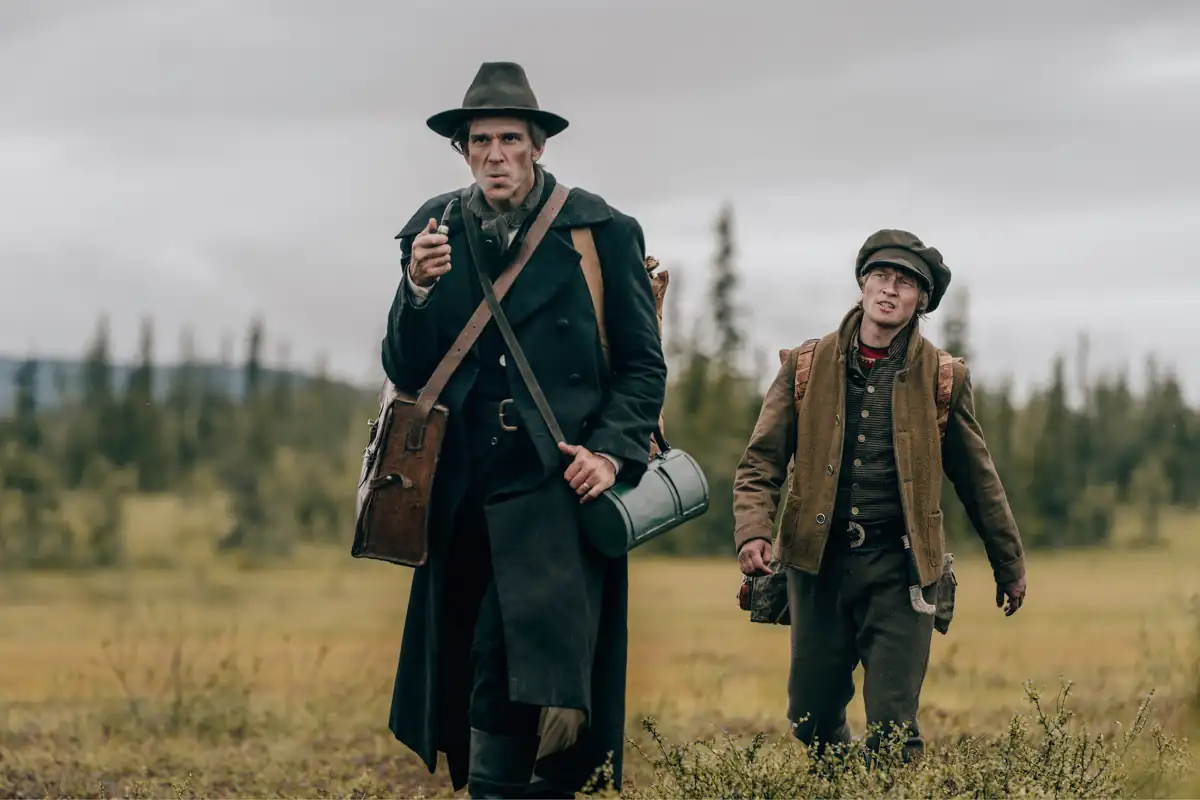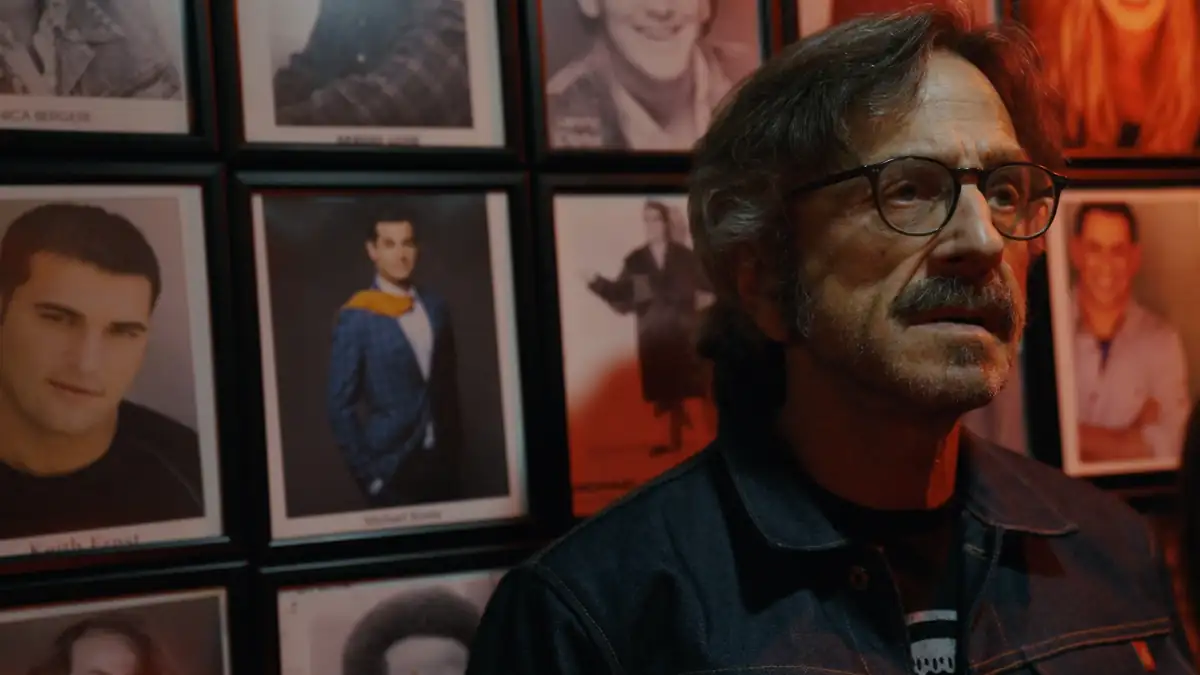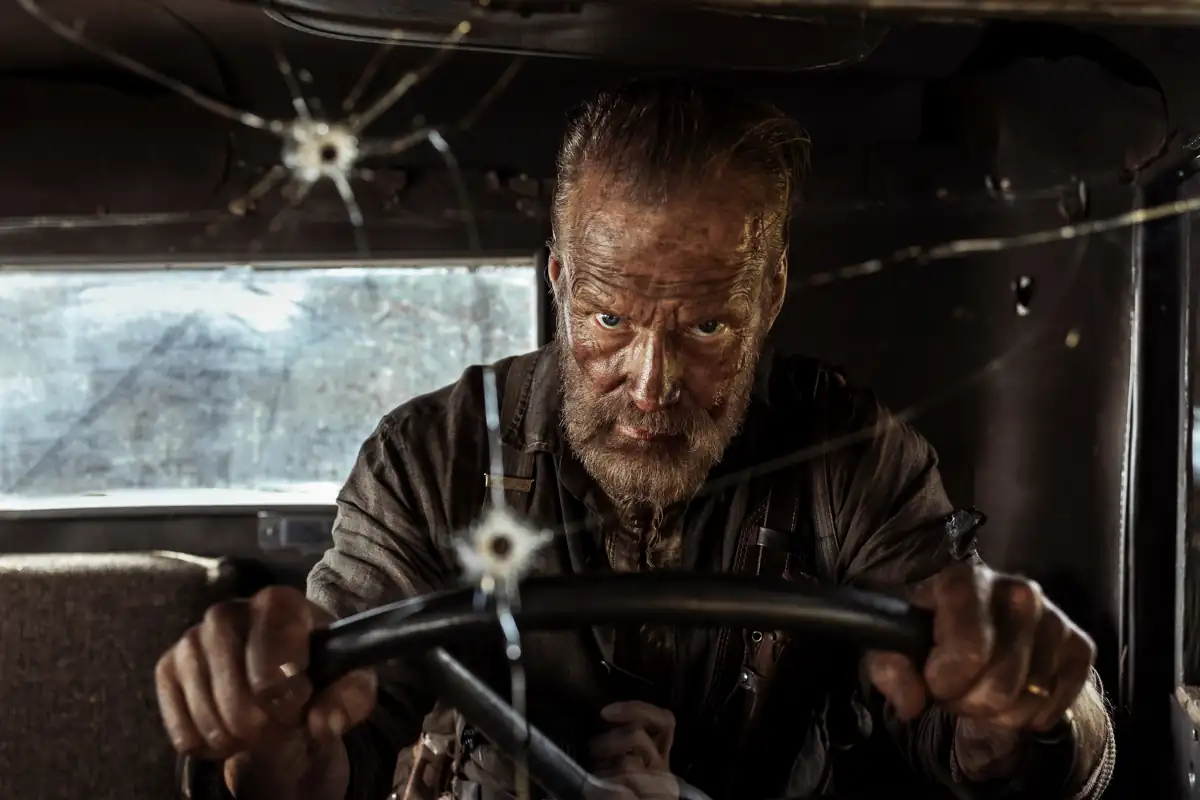Set against a backdrop of a collapsing society, NOMADLAND is a subtle and sensitive portrait of coping with loss in a world that won’t let you slow down. It is only the third film from director Chloé Zhao, yet it already shows a tremendous mastery of her craft.
Anchored by a towering performance by Frances McDormand, this is one of the best films of the year and an incredible time capsule of a defining moment in American history.
After the collapse of a company town and her husband’s death, Fern (McDormand) packs her things in rented storage and sets off her camper van towards the unknown. She works menial jobs afforded by the seasons and follows other like-minded individuals’ trail into the dusty reaches of unwanted America. These are people all running from something, unable to process their grief or mental anguish in the presence of others. But they’re part of a society that doesn’t look kindly on those needing a break, so their grief is on hold. Perhaps even for good.
Instead, they become the cogs in a giant invisible wheel, one that keeps tourism moving and Amazon turning a profit. They’re pilgrims with no mecca, destined to wander from one temp job to another until they die – trauma unprocessed.
Based on Jessica Bruder’s non-fiction book Nomadland: Surviving America in the 21st Century, Zhao’s film is a restless story told like a documentary, even though the result is fiction. It’s a weird, dreamlike state akin to a Bruce Springsteen song, as honest for what it omits as what it includes. Real-life nomads play fictionalized versions of themselves, while McDormand’s character is a fabrication. Yet their circumstances are real, as are the heartbreaking stories they impart throughout the film. Zhao has created a vessel for humanizing those easily overlooked as statistics.
There’s an essential distinction between humanizing and romanticizing. The latter is all about making something desirable, or even admirable. The former presents everything as is, warts and all. Romanticizing is the domain of the wealthy; those who don’t worry where food will come from next. Where American storytellers and poets often make out the homeless as kings of the road and champions of the plains, it is rare to find a person who wouldn’t trade that imagined stature for a stable home that isn’t on wheels.
Even as we learn that Fern has the chance to opt out of this life, it’s clear that she wasn’t the one who made the first move into it. Her hometown, ironically named Empire, collapsed along with their factory, and before long, the company had it removed from the map entirely. America is still in a state of flux, uncertain of what to do with itself. In Zhao’s film, where the frontier once was everywhere, there now exists only decrepit rest stops and inhumane corporations providing parking spots in exchange for hard labor.
Far removed from the rustic iconography of Mark Twain’s Huckleberry Finn, NOMADLAND is more akin to the stark and angry lyricism of John Steinbeck’s The Grapes of Wrath. Both are essential novels dealing with the portrait of American self-reliance. Separated by a hundred years of capitalist evolution, the latter is a far angrier depiction of the have-nots. Another hundred years later, Zhao’s snapshot of the present has moved past the rage into a quiet resignation. Generations have already lived and died on the road, and what’s another hundred more?
There’s a humorous melancholy that undercurrents the oppressive mood. Nomads find humor in tourists’ callousness and the ostentatious RVs sold to those who will use them once a year. Fern eschews guided tours for freewheeling exploration. Toilet paper becomes an impromptu spa treatment. As society rejects people from its cold embrace, concerns like what others think about you suddenly fly out the window.
Like daylight hours, these moments are fleeting, filmed by Zhao as a series of escapes from reality. Her camera turns outward during the day, capturing the endless prairie and majestic mountain ranges caressed by dawn’s pink fingers. As night falls, the Nomads turn inward around a solitary fire, speaking in hushed tones about those they’ve lost. Even here there is no finality, with death spun into yet another traveler. “We’ll see you down the road,” everyone repeats.
Again, Springsteen comes to mind: “Families sleeping in their cars in the southwest. No home, no job, no peace, no rest. The highway is alive tonight. Where it’s headed, everybody knows. I’m sitting ‘round here in the campfire light. Waiting for the Ghost of Tom Joad.”

